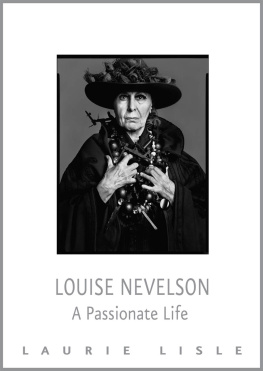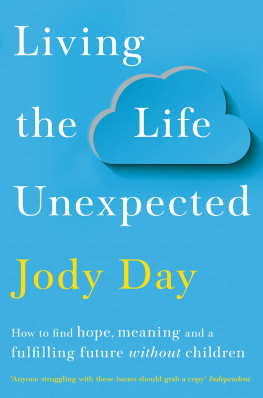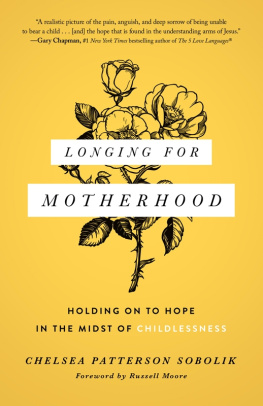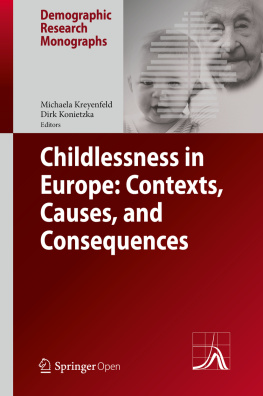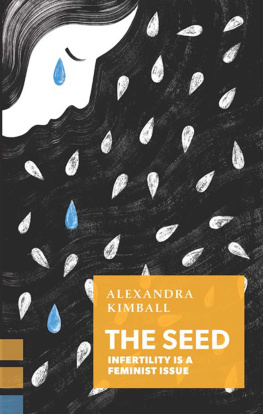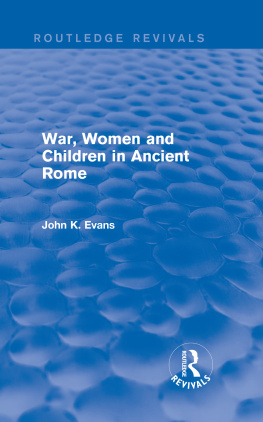Copyright 1996 by Laurie Lisle
All rights reserved, including the right of reproduction in whole or part in any form. For information, address Charlotte Sheedy Literary Agency, 928 Broadway, Suite 901, New York, NY 10010.
Print ISBN: 978-0-7867-5537-0
ebook ISBN: 978-0-7867-5538-7
ISBN: 978-0-7867-5604-9(e-book)
Grateful acknowledgment is made to the following for permission to reprint material:
Margaret Atwood and Oxford University Press Canada: Excerpt from Spelling from the poetry collection True Stories by Margaret Atwood.
Copyright 1981 by Margaret Atwood. Reprinted by permission of the author and Oxford University Press Canada.
The Ella Lyman Cabot Trust, Inc.: Excerpts from the letters of Richard C. Cabot to Ella Lyman Cabot, dated June 11, 1893 and of Ella Lyman Cabot to Richard C. Cabot, dated June 12, 1893. Copyright 1995 by The Ella Lyman Cabot Trust, Inc. Published with permission.
Houghton Mifflin Company: Excerpt from The Double Image from To Bedlam and Part Way Back by Anne Sexton. Copyright 1960 by Anne Sexton; renewed 1988 by Linda G. Sexton. Reprinted by permission of Houghton Mifflin Company. All rights reserved.
Scribner: Parentage from The Poems of Alice Meynell by Wilfrid Meynell.
Copyright 1923 by Wilfrid Meynell; renewed 1951. Reprinted by permission of Scribner, an imprint of Simon & Schuster.
Distributed by Argo Navis Author Services
INTRODUCTION
I first began to think about writing this book as I approached the age of forty, a watershed birthday in regard to childbearing. I did not undertake it then for a number of reasons, but as the decade passed, it was evident that childlessness was not only a silent issue in my life but also in the lives of many of my friends. It was a situation where the lack of an experience was a significant event in itself. My wish to explore this subject lay dormant for a decade, gathering force, until one day, as I was making the long drive to my mothers house, the ideas for the book came pouring forth. I steered with one hand and scribbled down my thoughts with the otheralmost all of them appearing here as I envisioned them that day.
As I imagined this book that afternoon, I started with my own story, that of an American girl growing up in the 1950s and groomed to be a stay-at-home mother, but coming of age in the 1970s and aspiring to another kind of womanly life, one I hoped would be interesting and joyous, but perhaps apart from motherhood. I immediately planned to research how females had viewed child rearing in past generations. I wanted to examine the nature of modern mothering and why it was so difficult to believe its ancient promise of female fulfillment. That day I pledged to describe the illusionary, perfect child of my imagination, the dream that made it troublesome to give up the idea of pregnancy. I jotted down a line about the role of fathers and husbands in the lives of females today, including my doubts about the protection of patriarchy and the possibility of co-parenting. I hoped to explore the experience of femininity outside of motherhood, a topic that had never been addressed as far as I knew. I vowed to describe my efforts to reconcile the differing demands of having a baby and writing a biography. I would end my book, I noted, by investigating what women without their own children can expect in middle and old age.
After selling the book proposal to my publisher, I began the research the way I had started my biographiesby becoming absorbed in the lives of others. I searched womens literature and letters, reviewing cases when womens celibacy and consequent childlessness was sanctioned by religion, exploring situations in which they were unable to conceive or carry, and where they chose to innovate childless marriages. I also studied the work of social scientists, eager to discover the experiences of my childless predecessors and peers. Science may be the wrong word for the findings of the sociologists, psychologists, psychiatrists, and social workers who have made the study of nonparents a specialty, since their various sampling and analytical methodologies are often incompatible. For instance, they do not always distinguish between their subjects explanations for childlessness, which can range from early inchoate certainty to eventual grudging acceptance. In addition, subjects who volunteer to be interviewed are more likely to be intentionally rather than ambivalently or unintentionally without progeny. Furthermore, since the researchers tend to interview those in their academic communities, like educated white wives, it at first appears (falsely) that only the relatively privileged are willingly childfree, but United States Census Bureau figures and abundant anecdotal and other information suggest otherwise. The scientific jargon that describes the investigators data is clinical and flat, but nevertheless the sum of their findingsinterviews with thousands of the childfree and childlessoffer an intriguing picture of this growing minority. (All this and other data are elucidated at the end of the book.) My reading of womens novels and diaries as well as folktales and sociological journals, my conversations with friends and recollections of my childhood, all prompted in me flashes of recognition, caused me to question the nature of free will, and finally released me from a lingering feeling of apartness.
As my notes grew and my manuscript took form, all of those who read it encouraged me to write more about myself as a gift to others, in the words of one friend. I hesitated for a while, wondering if my own story was relevant, but realized that although my background was unusual in many ways, it was also universal in the sense that it was shaped by widespread phenomena. I was a child of divorce, for instance. So as I decided to interweave my private history with those of others, I opened my old, handwritten journals apprehensively. Would I awaken painful buried memories? Would I pity or admire the earlier version of myself in the pages? As I read my own spontaneous words written decades earlier, I found myself relieved at my intuitions and rationales about postponing pregnancy. As a younger woman, I simply had wanted to feel very strong or safeable to protect my youngbefore giving birth, since the social order around me seemed harsh toward mothers and children. I also realized that as a writer I had been afraid of losing my life in motherhoodif not literally, as in the days when the physical dangers of pregnancy were grave, but in another way, by losing my ability to direct my time, mind, and energy. In contemporary America it seemed wiser for me, and more responsible toward an unconceived child, to remain childlessa dramatic turnaround of the traditional way females had survived socially by bearing sons.
Since my life is inevitably intertwined with the lives of others, I was concerned about invading the privacy of my relatives and friends as I wrote my story. But I recognized that I was taking the greatest risk of all by revealing my own feelings, so raw and unresolved at times. If I feel that most human relationships are a poignant brew of desire and disappointment, so, I am sure, do others. And many of the events I wanted to describe had happened a long time ago. As I reached the age of fifty, I realized it was finally time for me, a teller of other womens tales, to write openly and honestly about myself. My willingness to tell the truth as I experienced it has been difficult but compelling and ultimately cathartic. I certainly hope that it will be read as an offering to others.


